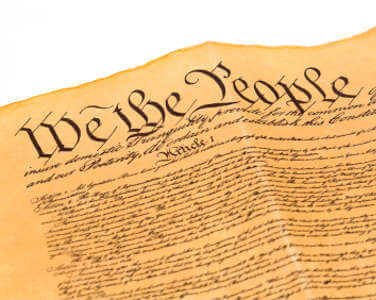
Pro-gay groups had flooded Apple with protest petitions – reputedly containing over a hundred thousand signatures against the Exodus app. Change.org, which launched the petition-drive to block the Exodus app, called the ministry’s message “hateful and bigoted.” Apple spokesman Tom Neumayr admitted that the company’s decision to censor Exodus International was because it deemed the Christian group’s Biblical position “offensive to large groups of people.”
Last November Apple also blocked the Manhattan Declaration app because of its traditional orthodox Christian view of marriage. It is now time for Apple to decide definitively whether or not it believes in the principle of free speech. The evidence so far suggests that it does not. At the same time, it is incumbent on the rest of us to understand exactly why Apple’s decision is so wrong, and why our silence on this issue could be disastrous.
Here at NRB we are so concerned about potential anti-Christian censorship over new media platforms that we formed the John Milton Project for Religious Free Speech to study the issue, even before Apple had decided to block the Manhattan Declaration app. Of course, some will raise a query concerning the fact that Apple and other private communications platforms, like Facebook, Myspace, and Twitter, web search engines like Google and Bing, and big Internet service providers like Comcast, Verizon and AT&T, are all private commercial entities.
The question, then, is whether that fact alone should allow them the license to discriminate against certain content simply because it contains a Christian viewpoint. I would strongly suggest that it does not. Unlike newspapers, magazines, blogs, websites, or TV and radio stations for that matter (activities that qualify for the Founders’ First Amendment vision of “freedom of the press”), the communication companies I listed above are not in the business of providing, themselves, editorial content, viewpoints, opinions, news, or information.
Instead, they simply provide a technological platform (for a fee) that enables American citizens to exercise their free speech rights. Beyond that, all of these communication companies utilize the universal, public communications resource of the Internet to provide their services. Compare this to another situation: if a telephone company were suddenly to announce that it has denied service to a local church because it disapproved of that church’s Gospel message, the public outrage would be instantaneous. In this age of the increasing communications dominance of web-based applications and services like Apple’s iPhone and its App Store, our disapproval of that company’s blatant censorship should be just as palpable.
Some warning signs are so self-evident that we ignore them only at our peril. A note from history reminds us of that simple truth. Shortly after the fateful sinking of the Titanic on April 14, 1912, Senators Alden Smith and Isidor Rayner led a Senate investigation into the tragedy. The record that resulted must have astonished them. Testimony showed that the wireless operator onboard the Titanic had received numerous warnings of dangerous icebergs from other ships in the area. Within an hour – after yet another warning – the Titanic was going down. Let us hope that some day in the future Christian communicators don’t find themselves wondering how we could have neglected so clear a warning sign that our free speech rights were about to be sunk.
Craig L. Parshall is the senior vice president and general counsel at the NRB.














































